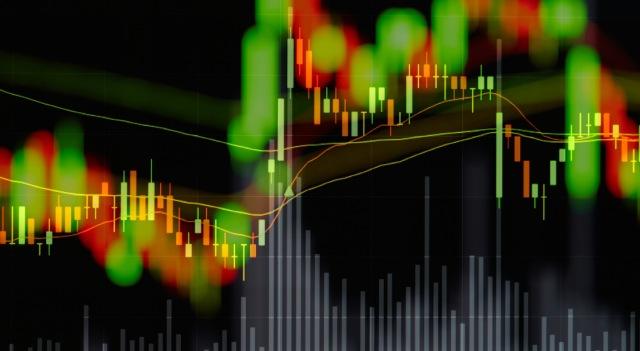US index futures indicate a higher open in pre-market trading this Wednesday, as investors focus on the Federal Reserve’s monetary policy decision and Jerome Powell’s press conference. Earnings highlights include Boeing, Mastercard, Kraft Heinz, Meta Platforms, Arm Holdings, and Qualcomm.
At 5:24 AM, Dow Jones futures (DOWI:DJI) rose 169 points, or 0.41%. S&P 500 futures gained 0.91%, and Nasdaq-100 futures advanced 1.44%. The 10-year Treasury yield was at 4.144%.
In the commodities market, oil futures rose following the assassination of Hamas leader Ismail Haniyeh, increasing tensions in the Middle East. West Texas Intermediate crude for September rose 2.73% to $76.77 per barrel. Brent crude for September rose 2.57% to near $80.65 per barrel. Despite this increase, prices are still pressured by concerns over weak demand from China and expectations of production cuts by OPEC+.
On Wednesday’s US economic agenda, the ADP will release private sector job creation data for July at 8:15 AM. At 8:30 AM, the Chicago Fed will release the July national activity index. The Department of Energy (DoE) will present the oil inventory position at 10:30 AM. At 2:00 PM, the Federal Reserve will announce its monetary policy decision, followed by a press conference with Fed Chairman Jerome Powell at 2:30 PM.
European markets are higher, driven by the technology sector, with investors focused on corporate earnings and digesting eurozone inflation data. Eurozone inflation rose to 2.6% in July, contrary to economists’ expectations that it would remain at 2.5%. In June, inflation was 2.5%, after 2.6% in May. Core inflation, which excludes volatile prices of energy, food, alcohol, and tobacco, also rose to 2.9% in July, exceeding the estimate of 2.8%. These numbers suggest persistent inflationary pressures in the European economy.
In France, inflation rose 2.6% in July, below the forecast of 2.8%, providing mixed data for the ECB and showing more controlled inflation than in Germany and the Netherlands. On Tuesday, the eurozone’s second-quarter GDP grew 0.3%, slightly above expectations.
Asia-Pacific markets closed higher, with Japan’s Nikkei 225 up 1.49%, reaching 39,101.82 points. Australia’s S&P/ASX 200 advanced 1.75% to 8,092.3 points. South Korea’s Kospi increased 1.19%, closing at 2,770.69 points. Hong Kong’s Hang Seng rose 2.24% to 17,383.25 points. China’s Shanghai Composite gained 2.06%, ending at 2,938.75 points.
The Bank of Japan (BOJ) surprised by raising its short-term interest rate to 0.25% and halving its monthly bond purchases. This change, signaling a gradual end to monetary stimulus, contrasts with other economies lowering rates. The yen temporarily rose, and the BOJ maintained its inflation forecast at 2% until 2026. Additionally, Japan’s industrial production fell 3.6% in June, less than the predicted 4.8% decline. Manufacturers expect a 6.5% production increase in July and 0.7% growth in August, according to the Ministry of Economy, Trade, and Industry. Retail sales grew 3.7% in June year-on-year, exceeding the market’s expected 3.2% increase.
In China, the manufacturing PMI fell to 49.4, signaling contraction for the third consecutive month and remaining below the 50 growth line. The non-manufacturing PMI fell to 50.2, below the 50.3 forecast, highlighting a slowdown in the services and construction sectors. Additionally, the China Securities Regulatory Commission replaced Vice Chairman Fang Xinghai with Li Ming, head of the inspection department. Fang had been in the role since 2015 and is retiring, as reported by the Global Times.
In Australia, second-quarter inflation rose 1% from the previous quarter, reaching 3.8% annually in June. This figure aligns with expectations and is a slowdown from May’s 4%. Lower inflation may allow the Reserve Bank of Australia to consider rate cuts or avoid increases, as discussed at the last monetary policy meeting.
On Tuesday, the Dow Jones rose 0.50%, closing at 40,743.33 points, while the Nasdaq fell 1.28%, ending at 17,147.41 points, its lowest level in over a month. The Nasdaq’s decline was driven by pressure on tech stocks, with Nvidia (NASDAQ:NVDA) falling 7%. The S&P 500 also retreated, dropping 0.50% to close at 5,436.44 points.
In Wednesday’s quarterly earnings reports, Boeing (NYSE:BA), Mastercard (NYSE:MA), Kraft Heinz (NASDAQ:KHC), Altria (NYSE:MO), Norwegian Cruise Line (NYSE:NCLH), Wingstop (NASDAQ:WING), Cameco (NYSE:CCJ), Humana (NYSE:HUM), Generac (NYSE:GNRC), Teva Pharmaceutical (NYSE:TEVA), and more will report before the market opens.
After the close, numbers from Meta Platforms (NASDAQ:META), Arm Holdings (NASDAQ:ARM), Qualcomm (NASDAQ:QCOM), Lam Research (NASDAQ:LRCX), Carvana (NYSE:CVNA), Western Digital (NASDAQ:WDC), Riot Platforms (NASDAQ:RIOT), Paycom Software (NYSE:PAYC), Albemarle (NYSE:ALB), Agnico Eagle Mines (NYSE:AEM), and others are awaited.
